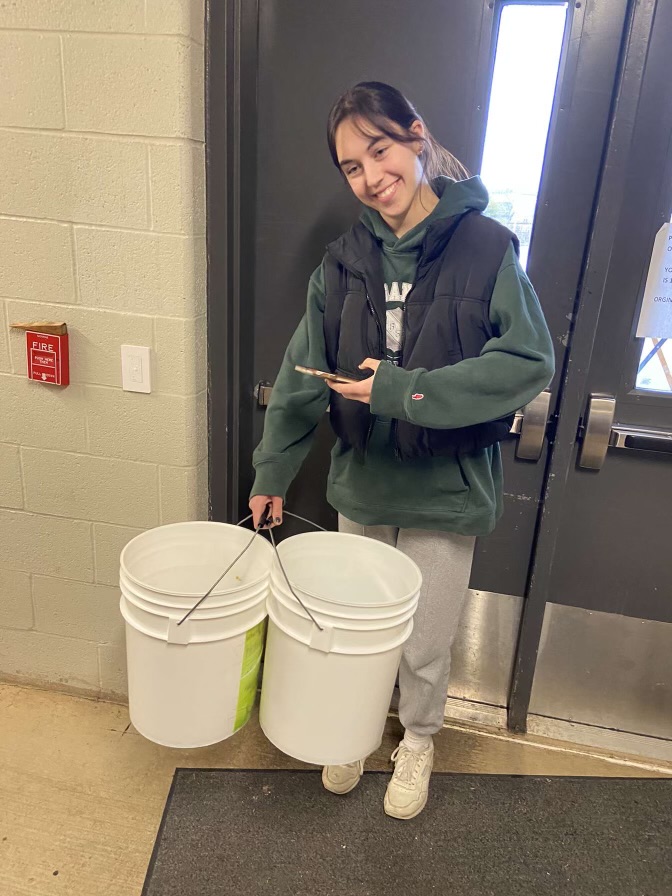The Power Of Composting
Environmental Club member Lyla Higgins holding compost buckets. Composting is a great way to reduce food waste and give back to the environment.
June 1, 2023
This past weekend, people all across the world celebrated Earth Day by participating in activities such as cleaning up trash, planting trees, holding recycling drives, and doing other things to lessen their negative impact on the environment. In light of Earth Day, there should be recognition and a change in the effect of uneaten food on landfills.
When food waste decomposes in landfills, it releases dangerous greenhouse gasses that contribute to climate change. Around 30-40% of our entire food supply is wasted, and food waste takes up around 22% of solid landfill space. While a portion of food waste is tossed before any food reaches any plates, there are still actions to be taken to lessen the amount of food waste. One simple and effective way to do so is by composting.
Compost is categorized as any organic material that has naturally been broken down in soil by fungus and bacteria. It usually takes on an appearance that is similar to soil.
According to the United State Environmental Protection Agency, compost helps soil hold onto nutrients and moisture, making it less likely to erode. It also reduces the need for potentially harmful fertilizers and pesticides. Not to mention, when food waste naturally decomposes in the environment, it does not release any greenhouse gasses.
This year, State High’s Environmental Club has been working on composting State High’s food waste. According to Odessa Gregor, one of the club’s presidents, the organic material gathered during lunch is added to the compostable material the cafeteria already collects. There are bins placed around the cafeteria to throw unwanted food into.
Many have spent years throwing out scraps without a thought. Although it can be hard to change a habit and find the bins. Composting food after lunch is a small and simple way to reduce the amount of waste in landfills. Starting today, change the environment for the better. If there were to be a collective composting movement, an even bigger impact on Earth could happen.


